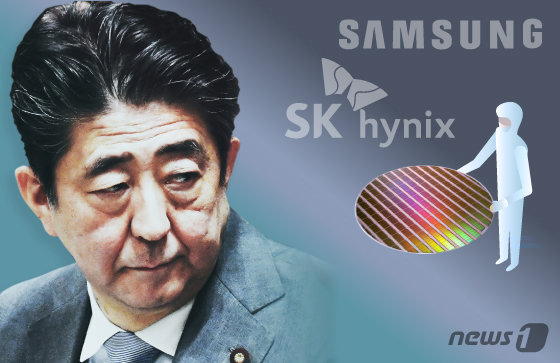‘Abe puts the global trade order at risk,’ says New York Times
‘Abe puts the global trade order at risk,’ says New York Times
Posted July. 17, 2019 08:00,
Updated July. 17, 2019 08:00

Japan has garnered criticism from experts and media outlets across the globe that it puts the global trade order at risk by misusing national security as the Japanese government imposed limits on exports of core materials to Korea citing North Korea-related sanction issues. Such critical voices are based on concerns that the global trade order can be shaken by claiming national security, which may be deemed to be a vague notion, to weaponize trade regulation.
The New York Times reported on Monday (local time) that Japan’s recent measures have weakened the order system that the international community has built around to prevent trade conflict from crossing the line. The article pointed out that damage done by trade war could become increasingly generalized. Foreign Policy also expressed concerns that the conflict between Korea and Japan clearly illustrates the threat to the world trade system posed by trade controls supported by exclusive misuse of national security, worrying that many decades of effort and progress in lowering trade barriers could go in vain.
Professor Daniel C. Sneider at Stanford University, who has studied the relationship between Korea and Japan, told the New York Times that Japan harms the global trade order by framing export controls as a national security measure. Dr. Bryan Mercurio of Chinese University of Hong Kong, also pointed out that such measures, if used too frequently, can collapse the world trade system, adding that the existing norms can be undermined if 10 to 15 countries, not a couple of them, take such action based on national exceptive clauses that are wrongly defined.
There is also criticism that Japan’s export curves are copying U.S. custom policy. Last year, the U.S. administration imposed tariffs on steel and aluminum imports for national security reasons. It applied Section 232 of the Trade Expansion Act, which allows the government to impose tariffs if industries related to national security face damage due to an increase in some particular article imports. Currently, Washington is carrying out a review of car-related tariffs based on the same section of the act.
lightee@donga.com







